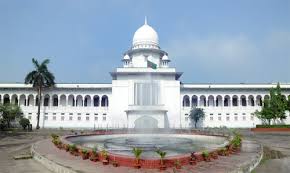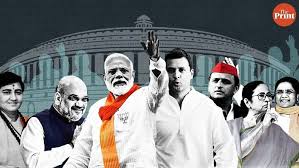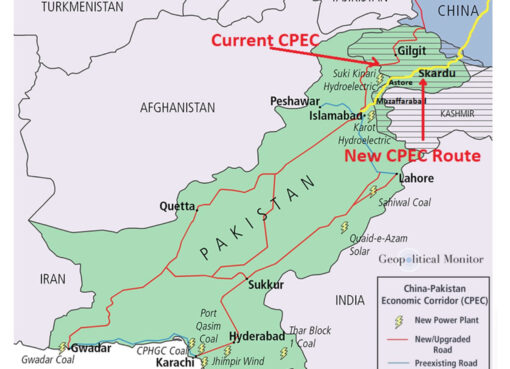Death row convict for more than a decade, Jamaat leader ATM Azharul Islam has been set free of the charges of Liberation War crimes. It has come as a big boost to Muhammad Yunus, who has just cut his detractors, notably the Army Chief, to size by dangling his resignation letter.
by Malladi Rama Rao*
It is a development in Bangladesh that does not come as a surprise. In fact, it was expected ever since Hasina was ousted and Yunus was popped up with Jamaat and other religious parties, student groups and BNP as his crutches.
Death row convict for more than a decade, Jamaat leader ATM Azharul Islam has been set free of the charges of Liberation War crimes.
A full bench of 7-Supreme Court judges led by Chief Justice Dr Syed Refaat Ahmed today gave the verdict.
The court had earlier upheld his conviction and death sentences handed down by the International Crimes Tribunal on Dec 30, 2014.
That verdict now stands rescinded.
It has come as a big boost to Muhammad Yunus, who has just cut his detractors, notably the Army Chief, to size by dangling his resignation letter.
The resignation charade helped him to consolidated his reign with no committed timeline for return to elected government.
The Supreme court bench, which constituted the Appellate Division, made four key observations, according to The Daily Star.
- ATM Azharul Islam was sentenced to death without a thorough assessment of the evidence and testimonies presented in court.
- The original verdict was a “travesty of truth”—a severe miscarriage of justice in the name of justice.
- The Appellate Division, in its earlier decision, failed to properly evaluate the evidence submitted before the court.
- Previous rulings had fundamentally altered the structure of the criminal justice system across the Indian sub-continent, including in Bangladesh—something the court deemed a grave error.
So, for the first time in Bangladesh’s judicial history, a tall religious leader sentenced to death for war crimes has been acquitted by the Appellate Division of the Supreme Court.
The International Crimes Tribunal (ITC) was set up during the Hasina raj to bring to book the collaborators and perpetrators of human rights violation and genocide in the run up to the Liberation of Bangladesh from Pakistani yoke in December 1971.
Now what are the charges against Azharul Islam?
In all, he faced six charges.
While acquitting him of one charge, the ICT on Dec 30, 2014, awarded death sentences for three charges and imprisonment on two charges.
Charge No 1: On 16 April 1971, Azharul Islam, alongside Pakistani forces and Jamaat members, attacked Moksedpur village. They plundered homes, set them on fire, and killed numerous unarmed civilians during the attack. So, his crimes were murder, plundering, and arson.
Charge No. 2: On 17 April 1971, Azharul Islam took part in a systematic attack across multiple Hindu villages near Jharuarbeel, which resulted in the killing of approximately 1,200 people and the abduction and killing of over 200 others. So, genocide, murder, arson, and plundering were the charges framed.
Charge No. 3: On 30 April 1971, Azharul Islam led a raid on Rangpur Carmichael College where four Hindu professors and one professor’s wife were abducted and later murdered. He was accused of genocide, abduction, and murder for the charge.
Death by hanging was the sentence for these three charges.
Charge No. 4: Between March and December 1971, under Azharul Islam’s leadership, victims were abducted and confined in Rangpur Town Hall, used as a rape camp. Victim “M.K.” was repeatedly raped and tortured there. So, the charges: abduction, confinement, torture, rape, and other inhumane acts.
Charge No. 5: In two incidents in November and December 1971, Azharul Islam slapped one youth for chanting “Joy Bangla” and later orchestrated the abduction and torture of his brother, who became permanently disabled. So, the charges: abduction, confinement and torture.
For these two charges, the ICT verdict awarded five years of rigorous imprisonment.
Well, history will judge as to whether falsehood prevailed or defeated with this Jamaat verdict.
On its part, the Jamaat-e-Islami claims that it is a victim of Hasina regime. Six top Jamaat leaders were victims of judicial killings through fabricated cases during Hasina’s rule, the party says, and adds that many other leaders and activists were also brutally murdered. During the July uprising of 2024, numerous people were mercilessly martyred.
This narrative appears to be a call for another International Crimes Tribunal – a Yunus version
(*Malladi Rama Rao is Delhi-based senior journalist and avowed watcher of sub-continental geo-politics. He is now senior analyst with the Deccan Council)




